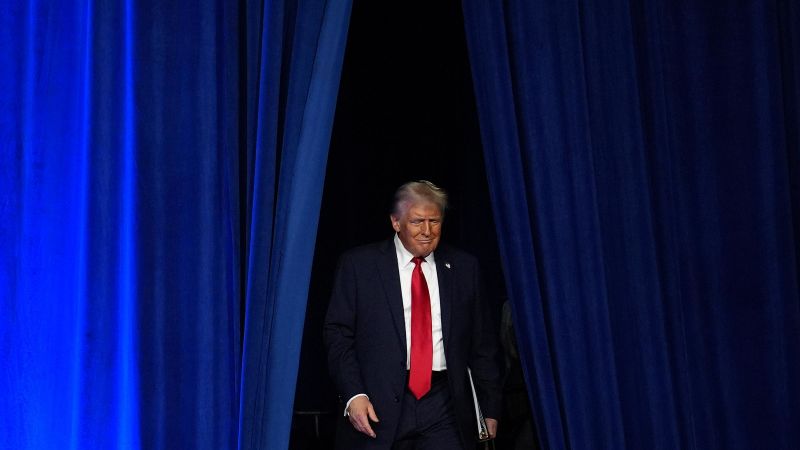[Lina Khan has enraged corporate America.
She wielded one of the world’s most powerful government departments, the Federal Trade Commission, to challenge big corporate mergers and to issue new regulations intending to give workers and consumers more rights.
Business leaders, consequently, wanted her fired. And with the incoming Trump administration, they’re going to get what they wanted.
On Tuesday, President-elect Donald Trump announced he will elevate Andrew Ferguson, a current Republican commissioner on the FTC, to be the agency’s chair. Trump said he will also nominate Mark Meador, a former antitrust staffer for Utah Republican Sen. Mike Lee, as an FTC commissioner.
Trump’s decision will likely be welcome news for some businesses, but certainly not all, and least of all for Big Tech — whom Ferguson has sharply criticized and, in the case of Google, has gone to court against while serving as Virginia’s solicitor general.
Here’s where Ferguson’s record suggests the FTC may be headed under his leadership.
A former aide to Senate Republican Leader Mitch McConnell, Ferguson has been an outspoken critic of large monopolies. He has backed calls for a nationwide data privacy law and he has called concentration in the technology industry “the competition question of our time.”
All of these things suggest some alignment with the current FTC’s priorities, particularly in recognizing the role that tech companies play in the modern economy and the importance of vigorously enforcing the nation’s antitrust laws.
His biggest differences with Khan have been on what they see as the power of the FTC itself, and whether or not it can rein in corporations by writing regulation, or if it would need to wait for a deadlocked Congress to pass legislation first.
Ferguson broke with Khan, for example, on the FTC’s groundbreaking nationwide rule banning clauses in worker contracts that stop them from leaving one employer and working for a competitor. The 2024 rule, which immediately triggered objections from business leaders who called it a government power grab, was not within the FTC’s authority to create, Ferguson wrote in a dissent.
“We are not a legislature; we are an administrative agency wielding only the power lawfully conferred on us by Congress,” Ferguson wrote.
The dissent reflects a deep and longstanding disagreement between Democrats and Republicans over the scope of the FTC Act — the congressional charter laying out the commission’s powers. In this situation, Ferguson argued that the “best interpretation” of the law was that it only empowered the FTC to make rules governing itself, not private businesses.
With Ferguson at the helm, the FTC appears poised to continue prosecuting monopoly and consumer protection cases, including the antitrust case to break up Meta filed during the first Trump administration and a pair of cases against Amazon.
Underlining the odds Ferguson will be tough on tech is his past role as Virginia solicitor general, wherein he, the Justice Department and a number of other states sued Google for monopolizing the market for digital ad technology. This major case targeted the $31 billion portion of Google’s business that matches website publishers with advertisers, and went to trial this fall. A decision could be handed down within weeks.
But, critically, Ferguson seems likely to steer clear of the types of sweeping rulemaking that Khan had championed.
It’s also becoming apparent that Ferguson may seek to wield the nation’s antitrust laws as a tool to force social media platforms to promote conservative speech even more than they do.
“It’s a lot easier for the government to control the conduct of the individual citizen if it only has to coerce a couple market participants,” Ferguson told Missouri Republican Sen. Eric Schmitt. “That is why the aggregation of private power is potentially so dangerous, because if the government can coordinate with only a few actors, it is a lot easier to control the rest of us. And I think that the litigation your state launched revealed how this can potentially work in real time.”
Ferguson has weighed in on social media speech in other ways, too. During his tenure as Virginia’s solicitor general, he, along with officials representing 17 other states, filed in support of Montana’s controversial law seeking to ban TikTok on personal devices statewide.
Ferguson’s track record suggests that while he and Khan both share a certain level of skepticism about tech, the incoming FTC chair is motivated by conservative grievances about online platforms in a way that is distinct from Khan, whose preoccupation with tech has focused mainly on economic outcomes.
In other ways, though, Ferguson and Khan appear to share some common ground. In a June interview with the Mercatus Center, a libertarian think tank, Ferguson defended some initiatives spearheaded by Khan’s FTC.
For example, he pointed out how an ambitious update to the US government’s merger guidelines — which lay out expectations for which mergers regulators may consider anticompetitive — were not a huge departure from existing court precedents.
While he might disagree on the margins about some of the new guidelines, Ferguson said, he doesn’t think it is productive to rescind the guidelines with every change of administration.
“The guidelines will become useless to everyone if everyone thinks that they just embody the very particular preferences of a particular party,” he added.
Elsewhere in the interview, Ferguson underscored a deep belief in the separation of powers, along with the guardrails established to protect it. Congress makes laws; the administrative state enforces them; and judges decide whether the enforcement is fair based on a close read of the law.
In that respect, Ferguson presents himself as an institutionalist, completely unlike the man who is about to give him a big promotion.
Source link

